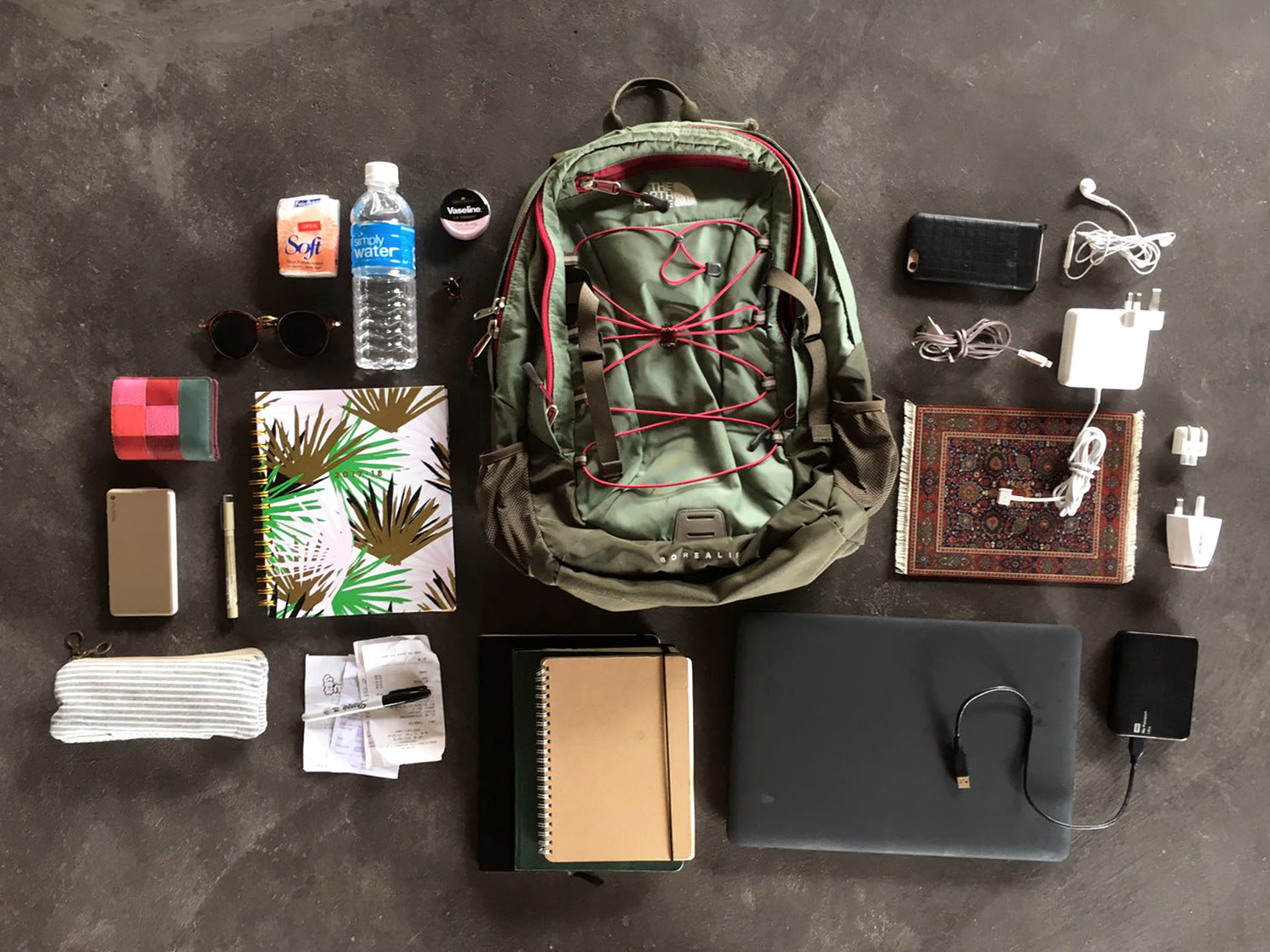Jan Chipchase’s “You Are What You Carry” chapter was a relatable followup read to his TedTalk on the anthropology of mobile phones. He elaborates on the four factors of security, convenience, reliable solutions and peace of mind that drive our carrying behaviors. These factors are inherently connected so that lack of one directly degrades another; for instance, if I feel my purse is not secure enough for the place where I am, my peace of mind will diminish. This is undeniably affected by someone’s environment at any given moment and how we prepare and react within that environment. Chipchase calls this phenomena – of determining how confident we are in the security of a situation so as to project how protective we need to be of our possessions – the range of distribution. What struck me was how this might be a conscious or unconscious effort to guard your belongings. Every person instinctively does so as a result of distrust of others and the danger we perceive in an environment.
Thus, the environment is the driving factor in how we carry items. A month living in Singapore has lessened my paranoia around my items being stolen compared to that in the United States. However, being in a foreign location where items are not so conveniently replaceable and may even be more necessary (i.e. a passport that cannot be instantly replaced) heightens a person’s tight range of distribution. Still, our range of distribution is affected by much more than just the country we are in. The neighborhood we are walking through, the cleanliness of the area, the people in a space, past records of theft in the location, and the items we are carrying are all factors in how closely we hold onto our belongings. Clearly, it would be easier to have fewer items to keep track of within your range of distribution – thus, the convenience of the mobile phone. But the mobile phone goes much farther in providing infinite data so that we can access inconceivably more than we would be able to physically carry at any given moment, so long as technology is reliable.
Reliability and security are two of the greatest flaws in creating digital equivalents of our belongings to “carry” around with us. People desire convenience and efficiency so much that with stronger technology it becomes a game of risk in how willing we are to put personal information on a digital database. Technology with greater capabilities to understand and predict human behavioral patterns means machines and technology are becoming more human. Vice versa, humans start giving up freedom and (physical) control of their belongings or information they own. Chipchase states that “People are risk-averse” so they would never give up so much control of their belongings that they would “be at the mercy of the network”. The trajectory of technological advancements and society’s sense of security, convenience, reliable solutions and peace of mind seems to almost be at a halt in terms of figuring out how to find a balance between all four factors. Yes, our behaviors tell us that we are what what we carry. But that is void without considering the context. Ultimately, I wonder if it is wiser to invest in increasing the security, reliability, convenience and efficiency of city infrastructures over that of the products we carry.

